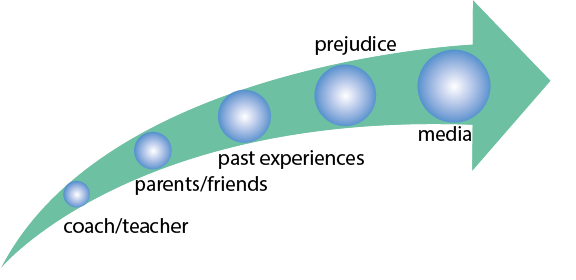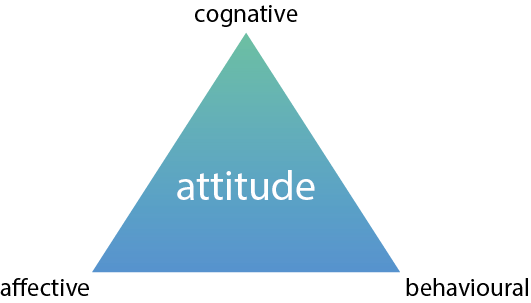Content
- Components of attitudes
- Cognitive dissonance and persuasion
Attitude is a learned behavioural predisposition, which is linked to personality. Attitudes are unstable, learned and can be changed or controlled.
Attitudes are mainly formed through experiences. The process of mixing and relating to people is known as socialisation. There are several factors that influence attitudes

There are three components of attitude:
The relationship between these three components is known as the Triadic model of attitude.

If a person holds two ideas that oppose and conflict each other, an element of discomfort arises. Emotional conflict is called dissonance. To reduce this feeling of dissonance, one of the conflicting ideas needs to be reduced, therefore changing attitude.
It must also be remembered that that motivation, personality and all aspects of acquisition of skill have impact on these three components.
In the coaching environment, there are several factors that need to be considered before someone will change their attitude: